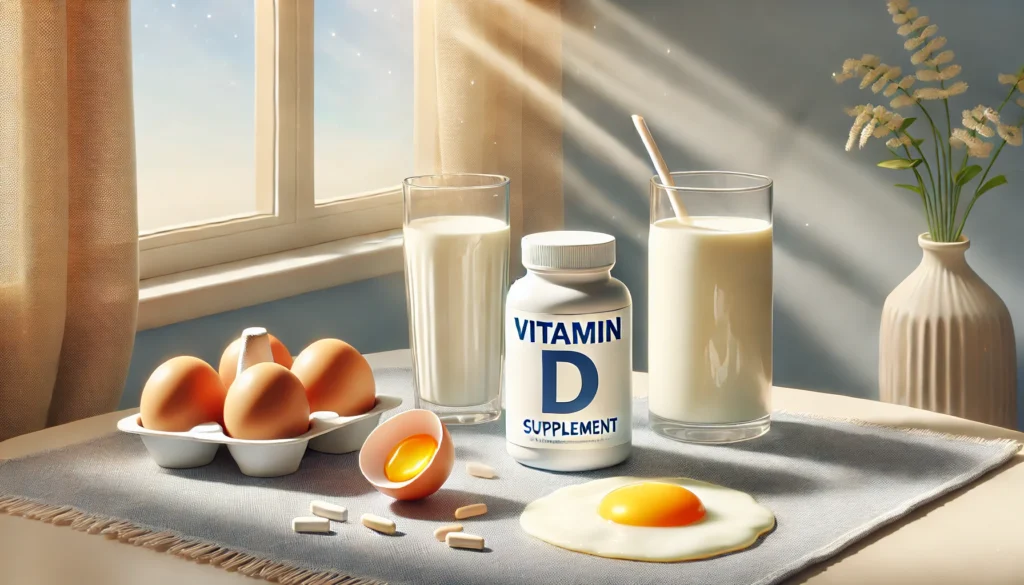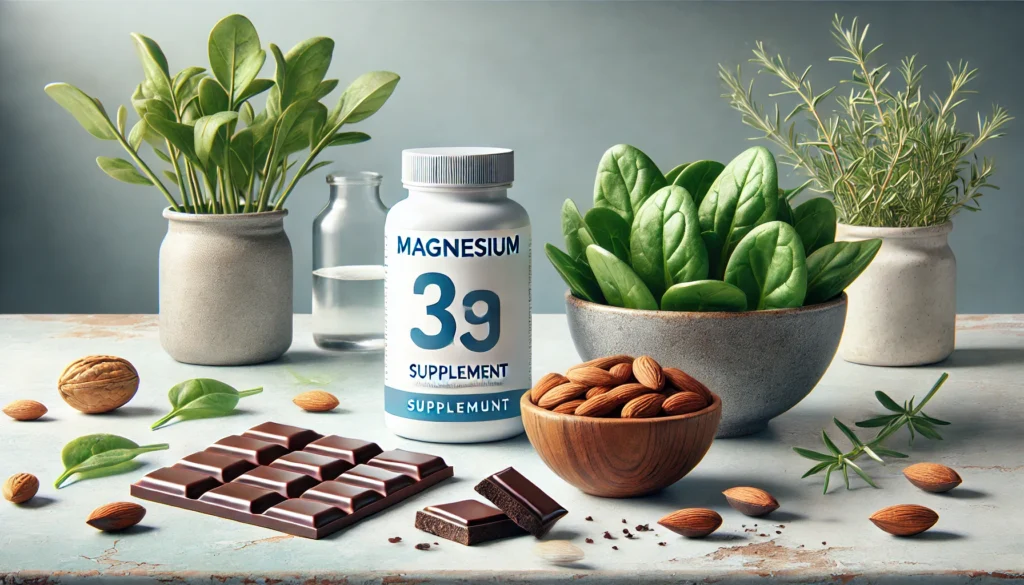Depression is a multifaceted mental health disorder that affects millions globally. It’s characterized by persistent sadness, loss of interest in activities, and a variety of physical and emotional problems. While traditional treatments such as medication and therapy are effective for many, supplements can offer additional support by addressing nutritional deficiencies that might exacerbate symptoms.
You may also like: Top 10 Herbs for Stress Relief
The Nature of Depression
Depression is not just about feeling sad; it’s a complex condition that affects the entire body. Symptoms can range from emotional disturbances like persistent sadness and anxiety to physical issues such as fatigue and insomnia. Recognizing the diverse manifestations of depression is crucial in addressing it comprehensively.
Historical Use of Supplements
Throughout history, various cultures have utilized natural supplements to improve mental health. Ancient Greek physicians recommended dietary changes and herbal remedies to balance the body’s humors. In Eastern medicine, herbs and minerals have been used for millennia to treat mood disorders, showcasing the age-old belief in natural interventions.
Modern-Day Challenges
Today, the fast-paced lifestyle and dietary habits contribute to the rise of depression. Factors such as poor nutrition, lack of sunlight, and chronic stress can deplete essential nutrients, which may worsen depressive symptoms. Understanding these modern challenges emphasizes the need for supplemental support in maintaining mental wellness.
The Science Behind Supplements for Depression
Supplements for depression often focus on providing essential vitamins, minerals, and herbal compounds that contribute to brain health and mood regulation. Scientific research suggests that certain deficiencies, such as in vitamin D, B vitamins, and omega-3 fatty acids, can be linked to increased risk of depression. By addressing these deficiencies, supplements can play a supportive role in mental health management.
Understanding Nutritional Deficiencies
Nutritional deficiencies can impact brain chemistry and mood regulation. For example, a lack of essential fatty acids or vitamins can impair neurotransmitter function, leading to mood disturbances. Recognizing and addressing these deficiencies is a crucial first step in leveraging supplements for mental health support.
Brain Chemistry and Supplements
The brain relies on a delicate balance of neurotransmitters like serotonin and dopamine to regulate mood. Supplements can aid in maintaining this balance by providing the raw materials needed for neurotransmitter production. This biochemical perspective helps explain why certain supplements are effective in alleviating depressive symptoms.
Research and Evidence
Numerous studies have explored the efficacy of supplements in treating depression. While some supplements have robust scientific backing, others are still under investigation. Understanding the current evidence helps individuals make informed decisions about incorporating supplements into their mental health regimen.
Omega-3 Fatty Acids
Omega-3 fatty acids, found in fish oil, are among the most researched supplements for depression. These essential fats are critical for brain function and have been shown to reduce symptoms of depression. Research indicates that EPA (eicosapentaenoic acid), a type of omega-3, is particularly effective. A meta-analysis of clinical trials found that omega-3 supplementation, especially EPA, can significantly improve depressive symptoms.
The Role of EPA and DHA
EPA and DHA, the two main components of omega-3s, are vital for brain health. They contribute to the fluidity of cell membranes and the transmission of neural signals. Studies indicate that EPA, in particular, may have antidepressant properties, making it a key component in managing depression symptoms.
Sources and Dosage
Omega-3s are primarily found in fatty fish like salmon and mackerel, but supplements provide a concentrated dose. Determining the appropriate dosage is crucial, as excessive intake can lead to adverse effects. Consulting a healthcare provider can help tailor the dosage to individual needs.
Combining Omega-3s with Other Treatments
Combining omega-3 supplements with traditional treatments like antidepressants may enhance overall efficacy. Some studies suggest that omega-3s can boost the effectiveness of medications, providing a more comprehensive approach to managing depression.
Vitamin D
Often referred to as the “sunshine vitamin,” vitamin D is crucial for mental health. Low levels of vitamin D have been associated with depression. It’s thought to influence the production of serotonin, a neurotransmitter that regulates mood. Studies suggest that vitamin D supplementation can help improve symptoms, particularly in individuals with a deficiency.
Sunlight and Vitamin D Production
The body synthesizes vitamin D upon exposure to sunlight, but modern lifestyles often limit this exposure. Understanding the relationship between sunlight and vitamin D is essential for addressing deficiency-related depression.
Supplementation and Its Benefits
For those with limited sun exposure, vitamin D supplements can be a valuable source. They help maintain adequate levels in the body, potentially improving mood and reducing depressive symptoms. Monitoring vitamin D levels through blood tests can guide effective supplementation.
Seasonal Affective Disorder (SAD)
Vitamin D is particularly relevant for individuals with Seasonal Affective Disorder (SAD), a type of depression that occurs during darker months. Supplementation may alleviate symptoms by compensating for reduced sunlight exposure during winter.
B Vitamins
B vitamins, including B6, B9 (folate), and B12, play essential roles in brain health and mood regulation. Deficiencies in these vitamins have been linked to depression. B vitamins assist in the production of neurotransmitters and help maintain proper nervous system function. Some studies indicate that supplementation with B vitamins can reduce symptoms of depression, particularly when combined with antidepressant medication.
The Role of Each B Vitamin
Each B vitamin has a unique function in the brain. B6 aids in neurotransmitter synthesis, B9 is involved in DNA methylation, and B12 supports nerve health. Understanding these roles underscores the importance of a balanced intake of B vitamins for mental health.
Dietary Sources and Supplementation
While B vitamins are found in various foods, supplementation may be necessary for those with dietary restrictions or absorption issues. Identifying reliable supplement sources ensures that individuals receive adequate amounts to support mental well-being.
B Vitamins in Combination Therapies
Research suggests that B vitamins can enhance the effects of antidepressant medications. They may also reduce side effects, making them a beneficial addition to traditional treatment plans for depression.
Magnesium
Magnesium is a vital mineral involved in numerous bodily functions, including nerve transmission and muscle function. It’s also been shown to have a calming effect on the brain. Research suggests that magnesium deficiency may be linked to depression, and supplementation could alleviate symptoms, especially in those with low dietary intake.
Magnesium’s Calming Effect
Magnesium plays a role in regulating neurotransmitters and reducing stress hormones. This calming effect can alleviate anxiety and depressive symptoms, highlighting its potential as a natural mood stabilizer.
Identifying Deficiency
Symptoms of magnesium deficiency include fatigue, muscle cramps, and mood disturbances. Recognizing these signs can prompt individuals to consider magnesium supplementation as part of their mental health strategy.
Choosing the Right Form
Magnesium is available in various forms, each with different absorption rates. Choosing the right form, such as magnesium glycinate or citrate, can maximize its benefits for mental health.

Herbal Supplements and Their Potential Benefits
Herbal supplements have been used for centuries in traditional medicine to address mood disorders. Here are some well-known herbs that are believed to help with depression:
The Historical Use of Herbs in Mental Health
Herbs have a rich history in traditional medicine systems like Ayurveda and Traditional Chinese Medicine (TCM). They have been used to balance the body’s energies and treat mental health issues. Exploring this historical context provides insight into the longstanding belief in the power of herbs.
Mechanisms of Action
Herbal supplements often work through complex mechanisms, such as modulating neurotransmitter levels or reducing inflammation. Understanding these mechanisms can help in selecting the right herb for specific depressive symptoms.
Safety and Efficacy
While many herbs have promising effects, it’s crucial to consider their safety and efficacy. Some herbs may interact with medications or have side effects. Consulting a healthcare provider can help navigate these potential risks.
St. John’s Wort
St. John’s Wort is one of the most studied herbal supplements for depression. It’s commonly used in Europe for mild to moderate depression. The herb is believed to work by increasing levels of serotonin, dopamine, and norepinephrine, neurotransmitters that help regulate mood. However, it’s important to consult a healthcare provider before using St. John’s Wort, as it can interact with other medications.
Mechanisms of Action
St. John’s Wort contains compounds that inhibit the reuptake of neurotransmitters, similar to some antidepressants. This action increases the availability of mood-regulating chemicals in the brain, potentially alleviating depressive symptoms.
Clinical Evidence
Numerous studies have validated the efficacy of St. John’s Wort in treating mild to moderate depression. However, its effectiveness in severe depression is less clear. Understanding the scope of its benefits can guide its use in mental health strategies.
Interaction Concerns
St. John’s Wort can interact with a range of medications, including antidepressants and birth control pills. These interactions can reduce the effectiveness of other treatments or cause adverse effects, highlighting the importance of medical supervision.
Rhodiola Rosea
Rhodiola Rosea is an adaptogen, meaning it helps the body adapt to stress. It’s been shown to improve symptoms of depression and fatigue by balancing neurotransmitter levels. Some studies suggest that Rhodiola can enhance the body’s resistance to stress and improve mood and cognitive function.
Adaptogenic Properties
As an adaptogen, Rhodiola helps the body cope with stress by modulating stress hormones. This ability makes it particularly beneficial for stress-related mood disturbances, potentially reducing the onset of depression.
Cognitive Benefits
In addition to mood regulation, Rhodiola may enhance cognitive function. It can improve concentration and reduce mental fatigue, offering additional support for individuals experiencing cognitive deficits alongside depression.
Usage and Dosage
Determining the right dosage of Rhodiola is crucial for maximizing its benefits. Starting with a low dose and gradually increasing it can help individuals gauge their response and minimize potential side effects.
Saffron
Saffron, a spice derived from the flower of Crocus sativus, has shown promise as a natural antidepressant. Clinical trials have found that saffron supplementation can improve depressive symptoms, potentially by increasing serotonin levels in the brain.
Active Compounds
Saffron contains active compounds like crocin and safranal, which are believed to have antidepressant properties. These compounds may enhance serotonin activity, contributing to mood improvement.
Evidence from Clinical Trials
Several clinical trials have demonstrated saffron’s efficacy in reducing depressive symptoms. Its effects are comparable to some conventional antidepressants, offering a natural alternative for individuals seeking herbal options.
Incorporating Saffron into Diet
Saffron can be added to meals as a spice or taken as a supplement. Understanding the best ways to incorporate saffron into one’s routine can optimize its mental health benefits.

Future Implications and Emerging Trends
As scientific understanding of mental health continues to evolve, the role of supplements in managing depression is likely to expand. Ongoing research into the gut-brain axis, for example, highlights the potential of probiotics and prebiotics in influencing mood and mental health. Additionally, the burgeoning field of personalized nutrition may lead to more tailored supplement recommendations based on individual genetic and metabolic profiles.
The Gut-Brain Connection
Emerging research highlights the bidirectional communication between the gut and the brain, known as the gut-brain axis. This connection suggests that gut health can significantly impact mental health, opening new avenues for supplement interventions.
Personalized Nutrition
Advancements in genomics and metabolomics are paving the way for personalized nutrition. By understanding individual genetic profiles, healthcare providers can recommend specific supplements that cater to unique metabolic needs, potentially enhancing mental health outcomes.
Technological Innovations
Technology is revolutionizing supplement development and delivery. Innovations like nanotechnology and bioavailability enhancement are making supplements more effective, ensuring that individuals receive the maximum benefit from their intake.

Practical Considerations and Safety
While supplements can provide valuable support in managing depression, it’s essential to approach them with caution. Here are some practical considerations:
Consulting Healthcare Professionals
Before starting any supplement regimen, it’s crucial to consult with a healthcare provider, especially if you’re currently taking medication for depression. Some supplements can interact with medications, leading to adverse effects. This consultation ensures that supplements are integrated safely into existing treatment plans.
Ensuring Quality and Purity
Not all supplements are created equal. Look for products that have been third-party tested for quality and purity. This guarantees that the supplements are free from contaminants and contain the stated amounts of active ingredients, providing peace of mind and ensuring efficacy.
Monitoring Response and Effectiveness
Keep track of any changes in your mood or symptoms when starting a new supplement. This can help you and your healthcare provider determine its effectiveness. Regular monitoring allows for adjustments in dosage or supplement choice, optimizing mental health support.
Conclusion
Supplements can offer a complementary approach to traditional depression treatments, potentially alleviating symptoms and supporting overall mental health. By addressing nutritional deficiencies and utilizing herbal remedies, individuals may find an additional layer of support in their mental health journey. However, it’s essential to use these supplements responsibly and in conjunction with professional medical advice. As research continues to unfold, the future of supplements in mental health care looks promising, offering hope and empowerment to those seeking natural ways to manage depression.
By integrating scientific insights with practical advice, this guide aims to provide a well-rounded perspective on the potential benefits and considerations of using supplements to alleviate depression symptoms.
Further Reading:
Vitamins/Supplements For Depression
Important Note: The information contained in this article is for general informational purposes only, and should not be construed as health or medical advice, nor is it intended to diagnose, prevent, treat, or cure any disease or health condition. Before embarking on any diet, fitness regimen, or program of nutritional supplementation, it is advisable to consult your healthcare professional in order to determine its safety and probable efficacy in terms of your individual state of health.
Regarding Nutritional Supplements Or Other Non-Prescription Health Products: If any nutritional supplements or other non-prescription health products are mentioned in the foregoing article, any claims or statements made about them have not been evaluated by the U.S. Food and Drug Administration, and such nutritional supplements or other health products are not intended to diagnose, treat, cure, or prevent any disease.


